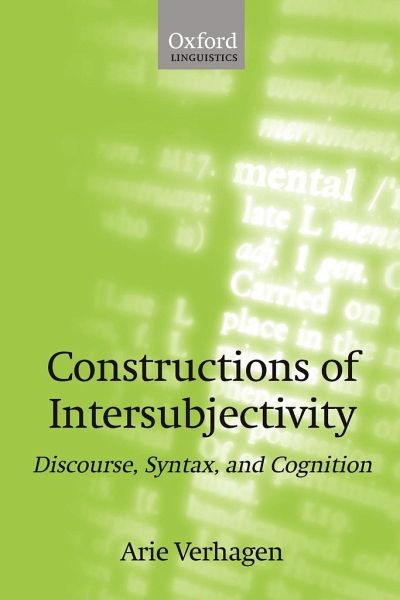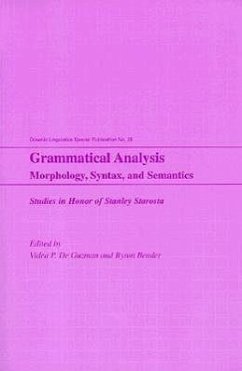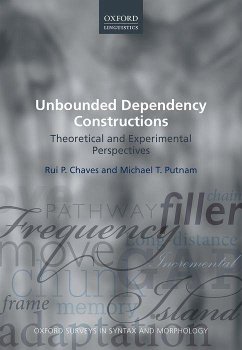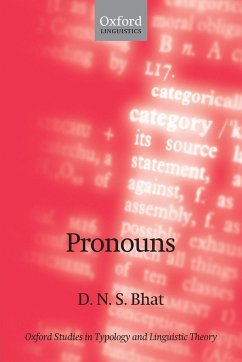
Constructions of Intersubjectivity
Discourse, Syntax, and Cognition

PAYBACK Punkte
30 °P sammeln!
Arie Verhagen develops a new understanding of linguistic communication focussed on cognition. He treats pragmatics, semantics, and syntax in parallel and integrates insights from linguistics, psychology, and studies in animal behaviour. He shows the continuity between language and animal communication and reveals the nature of human linguistic specialization. His powerfully argued and original explanation of the nature and operation of communication will interest awide range of scholars and advanced students in linguistics, cognitive science, and human evolution.





![Greek Syntax [microform], With a Rationale of the Constructions Cover Greek Syntax [microform], With a Rationale of the Constructions](https://bilder.buecher.de/produkte/65/65625/65625509n.jpg)






